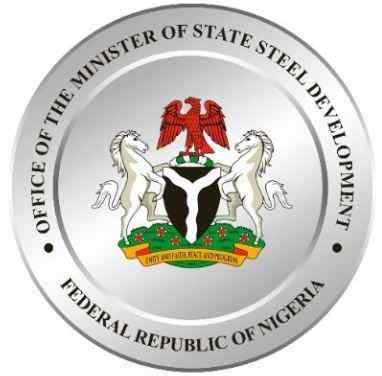The Ministry of Steel Development in Nigeria focuses on boosting the country’s steel industry. Its main goal is to improve steel production, which is important for building infrastructure and creating jobs.
The ministry develops policies to attract investment and enhance the quality of local steel products. It collaborates with different stakeholders, including businesses and communities, to ensure that steel manufacturing meets industry standards.
READ ALSO: List Of Ministers Of Police Affairs In Nigeria (1999-Date)
List Of Ministers Of State For Steel Development In Nigeria From 2008 Till Date
| No | Name | Terms In Office |
|---|---|---|
| 1 | Ahmed Mohamed Gusau | December 2008 - 17 March 2010 |
| 2 | Abubakar Bawa Bwari | 11 November 2015 - 30 May 2018 |
| 3 | Uchechukwu Sampson Ogah | 21 August 2019 - 29 May 2023 |
| 4 | Uba Maigari Ahmadu | 21 August 2023 |
What Are The Duties Of The Minister Of Steel Development?
As the Minister of Steel Development, your main duty is to help grow the steel industry and boost economic development. Here are some of the key responsibilities you’ll have:
1. Creating And Implementing Policies:
Your first task is to develop policies that help the steel industry grow in a sustainable way. You need to look at the current challenges in the industry, like lack of funding or outdated infrastructure, and create plans that attract new investments.
Also, you will work with other government bodies to ensure that your policies align with Nigeria’s overall economic goals, especially those related to industrialization and job creation.
2. Reviving The Ajaokuta Steel Complex:
One of your biggest jobs is to get the Ajaokuta Steel Complex up and running. This facility is key to Nigeria’s steel production, but it has faced many challenges in the past.
Your role will be to solve these issues, whether it’s lack of funding or poor management so that the complex can operate at full capacity.
Once it’s fully operational, it will not only meet local steel demands but also reduce the need for imports, helping Nigeria save money.
3. Collaborating With Stakeholders:
You’ll need to engage with different stakeholders, including private companies, investors, and local communities. By promoting strong relationships, you can create a better environment for investment in the steel industry.
Organizing forums and workshops will help bring everyone together to discuss problems and find solutions. Listening to all voices will allow you to make informed decisions that benefit the entire steel sector.
4. Building Industry Capacity:
The steel industry needs skilled workers, and you’ll be responsible for addressing the skills gap. Through training programs and institutions like the National Metallurgical Training Institute (NMTI), you can help create a workforce that’s capable of operating steel production facilities efficiently. You should also focus on increasing female participation in technical roles.
5. Ensuring Quality And Regulation:
As Minister, you also have to make sure that Nigeria’s steel products meet international standards. You will work with organizations like the Standards Organization of Nigeria (SON) to stop the inflow of low-quality imported steel that harms local producers.
In addition, you will set regulations to protect local manufacturers and ensure that quality control measures are followed across the steel industry.
READ ALSO: List Of Ministers Of Labour And Employment In Nigeria
Who Is The Current Minister Of State For Steel Development In Nigeria?
The current Minister of State for Steel Development in Nigeria is Uba Maigari Ahmadu. He took on this role on August 21, 2023, and is dedicated to improving Nigeria’s steel and metallurgical sectors.
Born in Wukari Local Government Area of Taraba State, Ahmadu has been active in both the public and private sectors.
He is a member of the All Progressives Congress (APC) and has years of experience in governance. As Minister, Ahmadu’s focus is on boosting Nigeria’s steel industry.
One of his major goals is to make the steel sector a reliable source of income and jobs for Nigerians. He is working hard to improve local production and make sure the country becomes more self-sufficient in steel manufacturing.
One of his notable efforts is with the National Metallurgical Training Institute (NMTI) in Onitsha. Under his leadership, the institute has been revitalized to train about 100,000 people annually.
This training includes women, helping to build a skilled workforce that can support Nigeria’s steel industries. Ahmadu believes that training a capable workforce is key to the country’s future in steel production.
Ahmadu is also working to improve the National Steel Raw Materials Exploration Agency (NSRMEA) in Kaduna. He has taken steps to make it a valuable resource for investors, researchers, and other stakeholders in the mineral sector.
In addition, he has partnered with organizations like the Standards Organization of Nigeria (SON) to address the problem of low-quality metal imports, which often harm local producers.

